Capturing the Brilliance of Dying Leaves
As foliage season winds down across New England, we thought this would be a good time to give you some last minute tips about how best to use your camera to capture the magnificent and tragic final days of a leaf’s existence. Just for a moment examine this serene red leaf resting in a smooth pool of mountain water, and tell me you don’t want to know a little bit more about leaphotography…
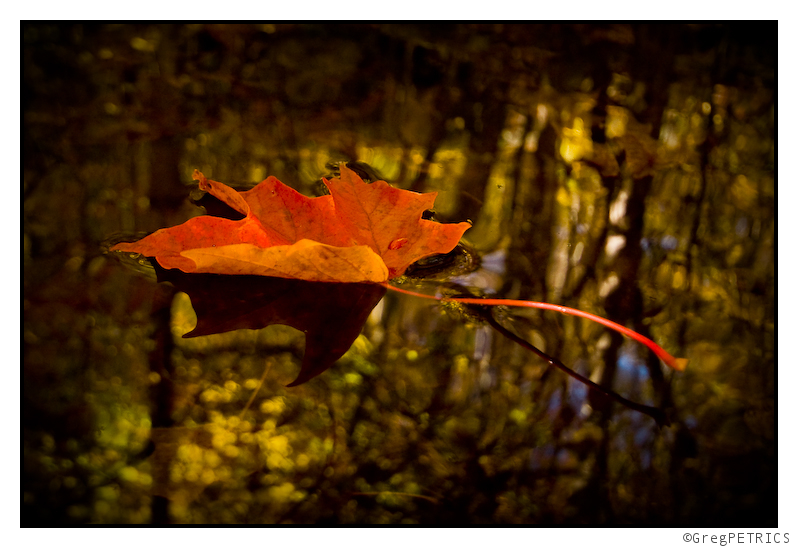
Click to Enlarge
Yeah that’s what I thought. I know it, and now you know it: There is not much in this world that compares to the beauty of rolling hillsides bathed in brilliant oranges, yellows and reds, and it is your god given right as a tax-paying citizen to spend way too much money on a DSLR, drive around aimlessly, erratically and slowly on country roads that the locals actually use to get to work, and to stop at any point on the highway (even if it is the traveled portion) and setup your tripod to capture an image of the brilliance (that no one will care about, and which will be forgotten [along with the several other hundred thousand foliage photos take each year by walking talking traffic hazards]).
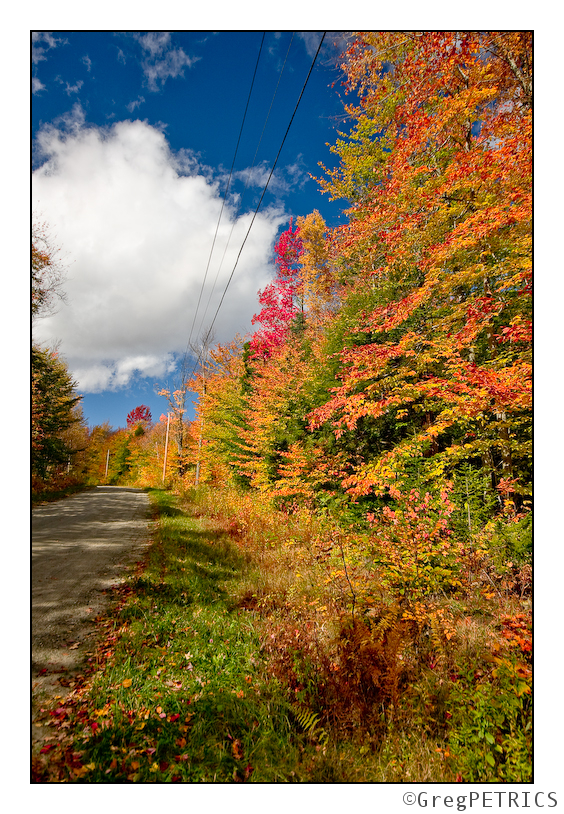
Click to Enlarge
The first and most important step is to make sure that you always have your camera in hand. Unless you are a true professional, it can be difficult to forsee when that perfect foliage shot will present itself, so always have your camera around your neck. Better yet, when on a pholiage fotography trip, just always look through the viewfinder of your camera, even (especially) when you’re driving. Here I am trying to buckle my boots through my viewfinder which was especially difficult through a 50mm lens on a crop body.
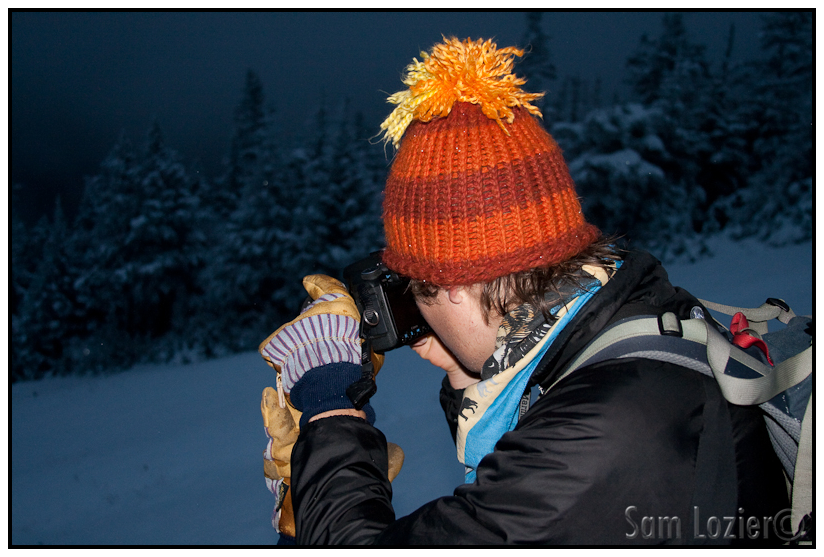
Click to Enlarge
Although it was difficult, and took probably 10 times as long as if I had just put the camera down for a minute to buckle my boots, lady luck bestowed her gifts upon me, and at that very moment I was able to capture this gleaming gem of a rare orange leaved alpine oak.

Click to Enlarge
Irrefutable proof that you NEVER know when “the shot” might dance in front of your lens.
Once you’ve found that special shot, it’s time to get ready to compose it. Make sure the horizon is level, and always obey the law of thirds… which basically says if you can divide the photo into thirds with cool stuff, do it… see this photo for example:
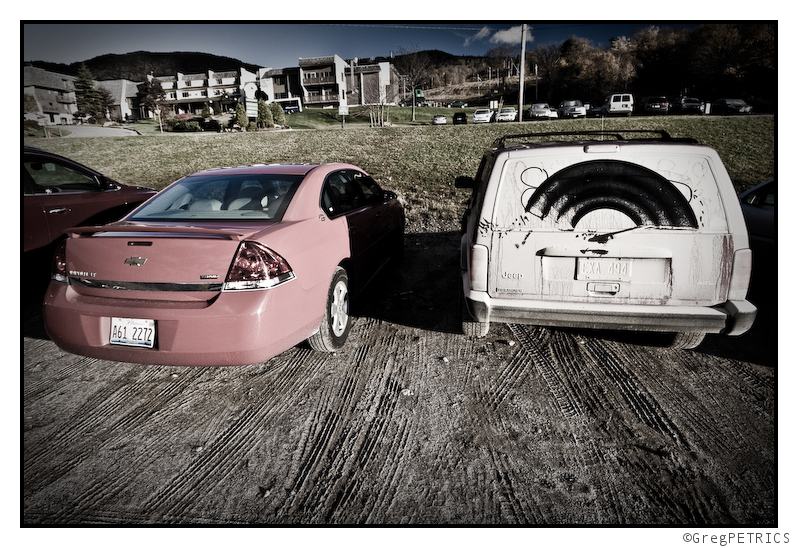
Click to Enlarge
Here we see a beautiful meadow with brilliant folia—wait a second. No that’s not the photo… who put that in here?! What is that on the Jeep’s rear window? Is that a peni—
Read about the author: Greg
5 Comments



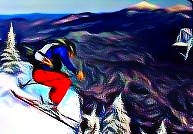


Kingsley
wrote on October 22nd, 2009 at 9:35 pmSolid work dude. Mathgeek/photogeek/wordsmith AND FIS? Damn.
sfmornay
wrote on October 25th, 2009 at 1:00 pmGreg sez:
” … this gem which uses the vanishing point to help the viewer interpret the post modern struggle of man versus machine.”
Thanks for clearing that up. I had convinced myself that it represented the spiritual crisis resulting from the intellectual paralysis brought on by confronting the physical inevitability of Zeno’s paradox.
Sam
wrote on June 21st, 2010 at 1:24 pmsomehow I didn’t catch that the first time around. You really need to comment more often, that was awesome!
Greg
wrote on October 25th, 2009 at 1:42 pmNo problem… the autonomy of art though lets us both be right :D
Anonymous
wrote on October 18th, 2010 at 12:14 amAMAZING. Never really found someone who loved winter as much as me. SoulMates?